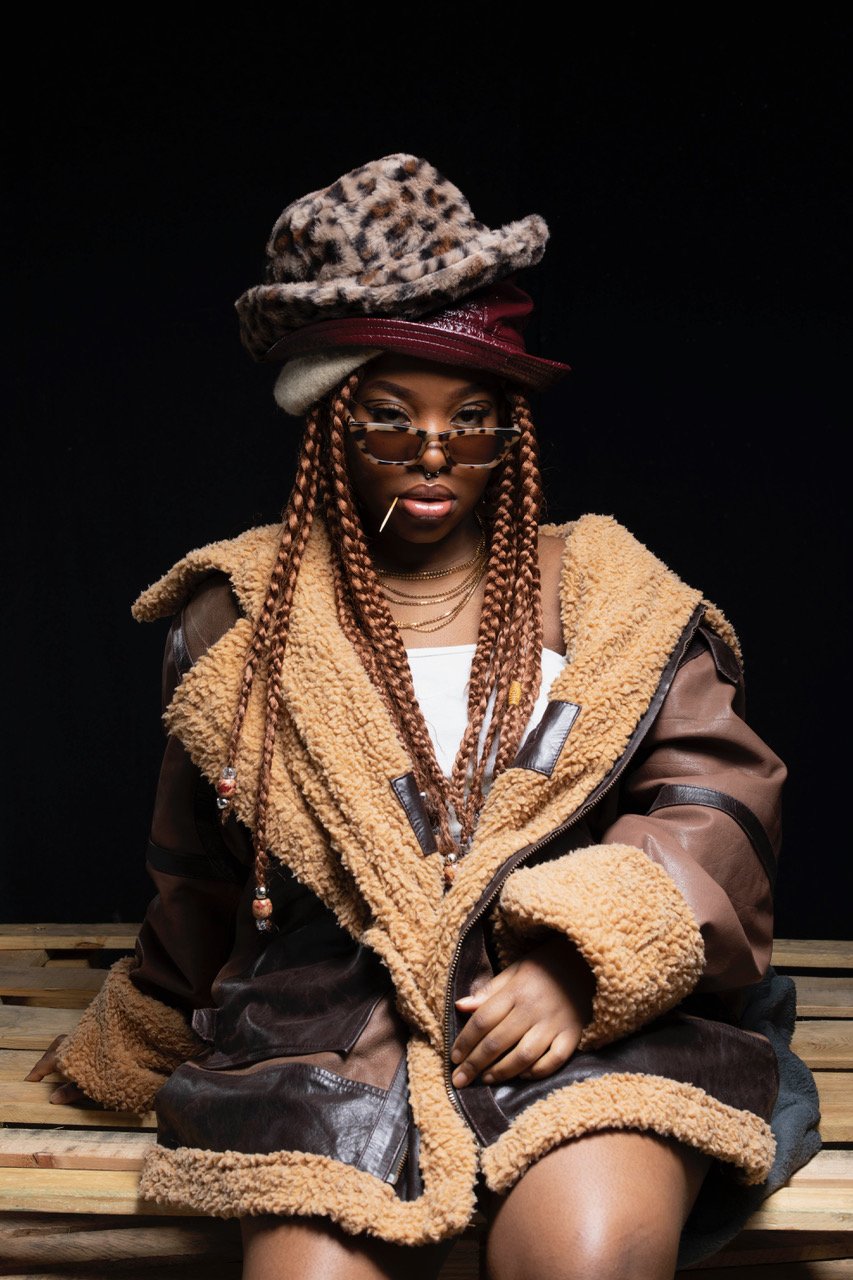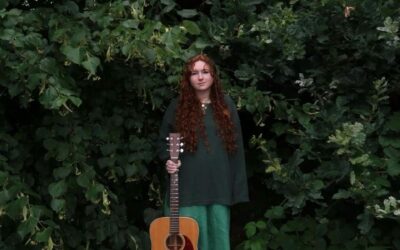“I feel like there is no space for women to be credited for their bars and musical talents alone, I feel like a woman has to be hyper-sexual or hyper-masculine in order to be celebrated, there is no in-between”.
Medulla, 24, faces the struggles of women in the UK rap industry. Rap is currently bigger than ever within the UK, but women are not being recognised for their talents like men in the industry are and women are rarely used in reference when people hear the word “Rap artist”. Artists Medulla and Chanté hope to change this for all female artists.
24-year-old, Medulla, based in Manchester creates jazz-inspired rap, as well as writing poetry and creating DJ tracks. “I began creating music after watching my dad write poetry throughout my childhood, which inspired me to produce music”.
Medulla was featured in ‘e.l.f’s ‘express your e.l.f’ campaign last year, where the Zimbabwean-born artist was painted on the side of a building in London after being recognised for her progressive and inspirational content relating to her roots. She was also featured on the TV show ‘Rap Game UK’ in 2021- “The industry needed someone who has a passion for change like I do.”
Medulla expressed that when she was young she accepted that there was sexism in most aspects of society.
“I use this today as ambition to now view being a black woman in the industry as a power, and not something holding me back.”
22-year-old, Chanté, from Portsmouth also spoke with me about being a black woman in the music industry. “I didn’t know how to control my emotions as a young girl and struggled with that for a while. Nobody teaches you how to deal with all those emotions that come with trauma at a young age. I would listen to music I liked and it was as if it all went away, that’s when I found that writing lyrics to songs helped me a lot, and this is what started my passion for putting my emotions into different songs.”
“I pride myself on how versatile I can be as an artist, I write poetry and then turn it into music that everyone can enjoy. I work with lots of different genres like R&B, jazz and solé and I use Instagram and Youtube content to try and influence the next generation of women that are inspired by this kind of music.”
Rap is bigger than ever, but women are still finding it hard to break through. Chanté explores how she is carving a role for herself in the industry. “When it comes to music, it is what I am most passionate about. Turning your pain into your art is a very courageous and unique talent. Hearing a song that has come from real emotions and feelings is what catches attention. I always want to push to strive for the greatest things, because you can do anything you put your mind to. I will always be open to expressing myself and trying all different and new things.”

However, the 22-year-old now doesn’t feel comfortable exploring some opportunities due to the way she has been treated being a woman in the industry. “I feel at a disadvantage being a woman in the industry, especially when in certain situations. For example, working with a new producer, or at events where sometimes I am overlooked, or not taken seriously like male artists would be and only seen for superficial reasons, and because of this I am extra cautious of who I work with and the environments I am put in where I may not feel entirely comfortable.”
These women are refusing to be discouraged. They are actively pushing for change and urging the industry to acknowledge the unfair and often uncomfortable situations faced by female artists. Their fight extends beyond gender equality; they champion inclusivity across ethnicities, ensuring a level playing field where all musicians can be celebrated on merit, not marginalized by identity.
This movement isn’t just about individual success; it’s about creating a legacy. By highlighting the importance of equality, these artists are laying the groundwork for a future where the next generation of musicians, regardless of gender or background, can find their voices heard and celebrated.




